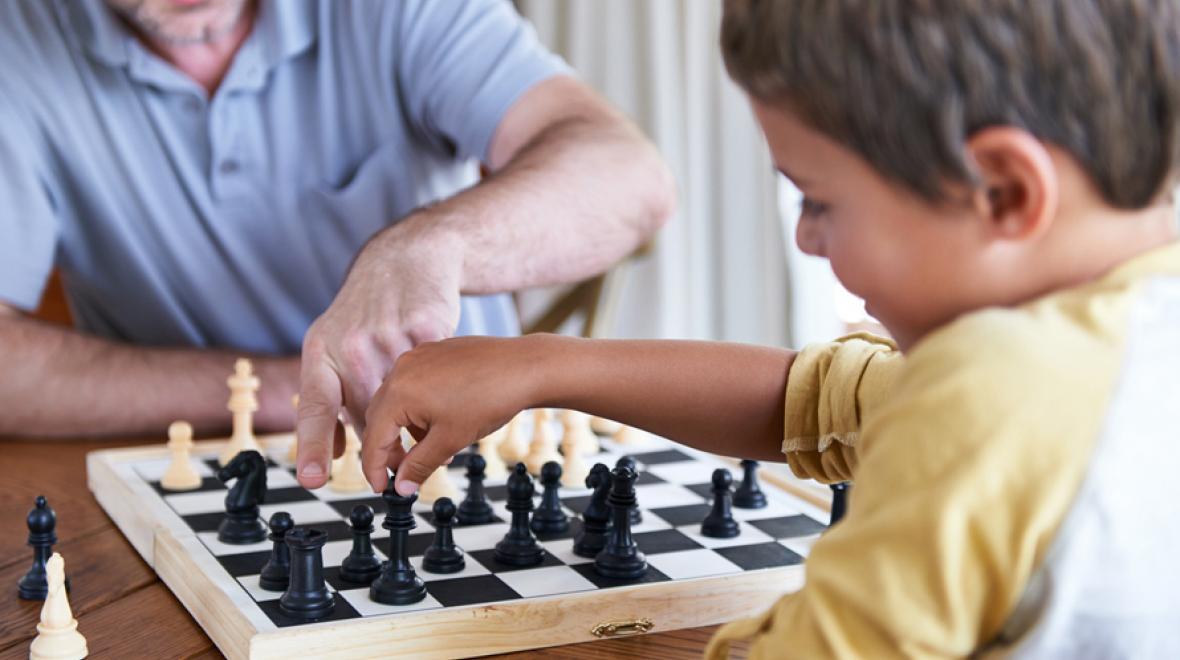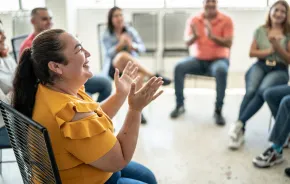
My father was a gamer before there was such a thing.
During my childhood, he and I bonded over everything from whiffle ball and football to canasta and poker to Rail Baron, Dungeons & Dragons and 1776.
I learned a lot playing games with my dad. I learned about strategy and how to get better at something with practice. I also learned that doing anything was more fun when it had a purpose. When I played a game with my father, we both played to win. Winning and losing gave the game consequences, and with those consequences came a clear direction and energy that the game wouldn’t have otherwise had.
What I didn’t learn: what those consequences actually were.
Like many competitive people I know, I grew to hate losing more than I enjoyed winning. That moment when I understood that I had come up short of victory confounded me. I was a loser. What else do you call someone who didn’t win? Within that awful word was everything I feared about adulthood and life itself — that maybe I don’t have what it takes to win at the most important game of all.
I am now the father of two boys. My wife and I homeschooled our older son, Sawyer, until he was 18. Once he was in his late teens, Sawyer began to worry about his future. Though he had hated school and couldn’t cope with its rules or social pressures, he feared that homeschooling hadn’t prepared him for adulthood. When he was feeling low, he’d call himself a loser.
I decided as a part of his schooling that I’d teach him to play chess. Sawyer considered it a “smart person’s game,” and he often doubted his own intelligence. Though he took to chess right away, he had never really played a strategy game before, and so initially, like a good dad, I played to teach him and not to win. Until, that is, he understood that I was taking it easy on him. “It’s no fun if you don’t try to win! Just play your best.”
All at once I was no longer a father teaching his son. The vaporous threat of loss filled my heart.
I didn’t think this was a good idea. Competitiveness was still like a drug to me. As soon as that switch was thrown, no matter how much I loved my opponent, I became the guy who had to win.
Sawyer didn’t care. Play to win, he commanded. So I did. And I won. And I won. Sometimes he’d knock all the pieces off the board when he lost. But he got better, and the games got closer and closer.
One afternoon we found ourselves in a very tight game. I’d made a mistake early on, and he’d capitalized on it. I surveyed the board and understood that he had the advantage. All at once I was no longer a father teaching his son. The vaporous threat of loss filled my heart, and I felt that old urgency to save myself from the worst of all possible outcomes. I moved, he moved, I moved and then he moved — taking my queen. For a moment, panic and loathing gripped me. I was doomed. How could I have been so stupid?
Then I looked up from the board and saw Sawyer. His face was alight. He was doing it: He was beating his dad. At that moment, a very different switch was thrown in me.
As I made my next move and as I watched him close in on my king, I felt more than just a father’s pleasure at watching his son succeed. Gone completely was the threat of failure and loss, replaced that day with love — the very opposite of what I had always feared waited for me in losing.
When we were done, I shook his hand and put my arm around his shoulder.
“You were trying to win, weren’t you?” he asked.
“You bet,” I said.
And I had.











